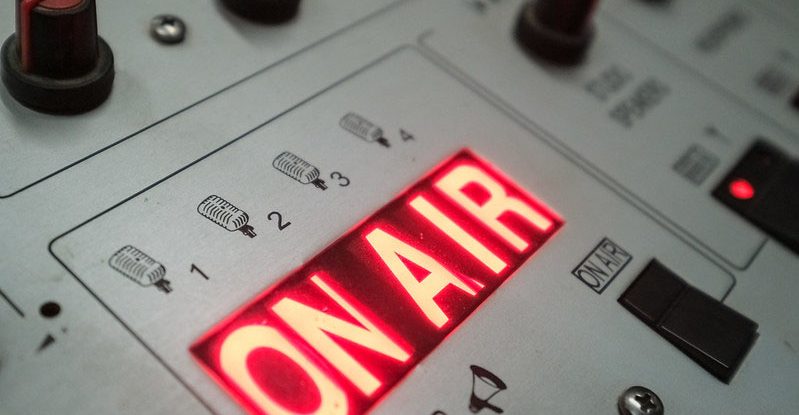Millions of people in Africa have been affected this year alone by drought, severe weather and flooding, but farmers lack information about how to adapt to a changing climate and the importance of maintaining forests, or using them sustainably, to buffer against global warming.
There are various reasons for the lack of information, including the large number of languages spoken throughout the continent. But one key factor, says Denis Sonwa, a senior scientist with the Center for International Forestry Research – World Agroforestry (CIFOR-ICRAF), is that journalists don’t feel comfortable tackling the subject.
That’s something scientists can help change, and a paper Sonwa and colleagues published in October in a special issue of the Journal of Environmental Media offers guidelines for teamwork between scientists and journalists.
“When CIFOR asked me to work on forests and climate change, I realized that communication was an important tool for helping to mainstream climate change in policy,” Sonwa says. He saw the opportunity to do just that as part of the Congo Basin Forest and Climate Change Adaptation Project (CoFCCA), a five-year project funded by the International Development Research Centre (IDRC) and the UK Department for International Development (DFID) and hosted by CIFOR.
“The idea of the project was to mainstream adaptation into work on forest issues and mainstream forests into the climate change arena in Central Africa,” he adds. “I thought that one of the key elements could be communication, and that working with journalists could be important for shaping the debate on climate change.”
In the Central African countries of Cameroon, Central African Republic (CAR) and Democratic Republic of Congo (DRC), most people in rural areas depend on the radio for news and information, while television is more common in cities and newspapers tend to be read by the urban elite.
And while climate change is an emerging issue, it still is not a priority topic in schools and universities, so journalism students often don’t have the opportunity to develop skills for thorough and accurate reporting on the issue, Sonwa says.
As a result, research shows, coverage of climate change adaptation and mitigation is very limited. A CIFOR study in Sonwa’s native Cameroon found that only 14 articles about reducing greenhouse gas emissions from deforestation and forest degradation (REDD+) appeared in newspapers between 2005 and 2009
There isn’t even a standard translation for the term ‘climate change’ in national and local languages, and most people who live in cities are unaware of political debate over funding for forests, Sonwa and his co-authors say.
Broadening understanding – and the debate – in Africa is increasingly crucial, especially as scientists learn even more about the Congo Basin forest’s importance for storing carbon because of its vast peatlands.
Sonwa and his colleagues began by inviting journalists to workshops that dovetailed with meetings of scientists involved in the CoFCCA project. Cameroon already had a network of science journalists, but in CAR and DRC they scoured the media to identify journalists who were already writing about environmental issues and would probably be interested in learning more.
Those workshops, held between 2009 and 2012, combined classroom sessions with field trips, where the 69 participating journalists worked side by side with scientists to gain more in-depth knowledge of forest ecosystems and climate change adaptation, as well as research methods. Time was also devoted to learning new techniques and multimedia strategies for social media.
While training experienced journalists was important, Sonwa and his colleagues saw the need to provide similar information to journalism students, so they would be prepared to report on forest and climate issues from the start of their careers. So they designed a two-tiered mentoring program that was pilot tested in Cameroon.
Experienced journalists were paired with scientists for a few months, sharing the drafts of their work with the scientists for feedback. Those journalists, in turn, became mentors to university-level journalism students. SciLife, Cameroon’s network of science journalists, helped identify the journalists and students who participated.
A six-month fellowship program was also established for graduate students in journalism and communications to focus their thesis research on climate change adaptation and forests. As a result of the training, Sonwa says, journalists and students who did not have a science background are more confident about reporting on climate change science and policy. Meanwhile, the media where the journalists work have increased their coverage of the issues.
For those who would like to launch a similar project, Sonwa says the first step is to understand what kind of information is most needed by policymakers and the public. “You have to see what is the communication need is in that place at that moment, and based on that, frame what you need to do,” he says. “Then identify key experts and journalists who are already working on environmental issues, especially climate change. Working with communications and journalism students in universities is important because they often lack a science background,” he adds.
Ultimately, climate change science and governance should become part of the curriculum, so journalism students are as well prepared to report on climate change as to cover sports, culture or other issues, he says.
“The world needs to reduce its ecological footprint, and that will not happen without communication,” Sonwa says. “And do not forget that the media can influence the way political decisions are taken. When a topic is well covered in the media, people who are taking the decision will react differently. We need to continue to build the capacity of journalists, and we hope others can learn from what we have done.”
The training initiative for journalists was part of the Congo Basin Forest and Climate Change Adaptation Project (CoFCCA).
We want you to share Forests News content, which is licensed under Creative Commons Attribution-NonCommercial-ShareAlike 4.0 International (CC BY-NC-SA 4.0). This means you are free to redistribute our material for non-commercial purposes. All we ask is that you give Forests News appropriate credit and link to the original Forests News content, indicate if changes were made, and distribute your contributions under the same Creative Commons license. You must notify Forests News if you repost, reprint or reuse our materials by contacting forestsnews@cifor-icraf.org.

